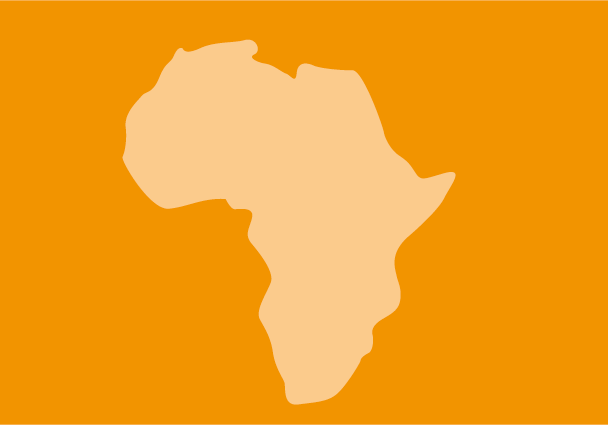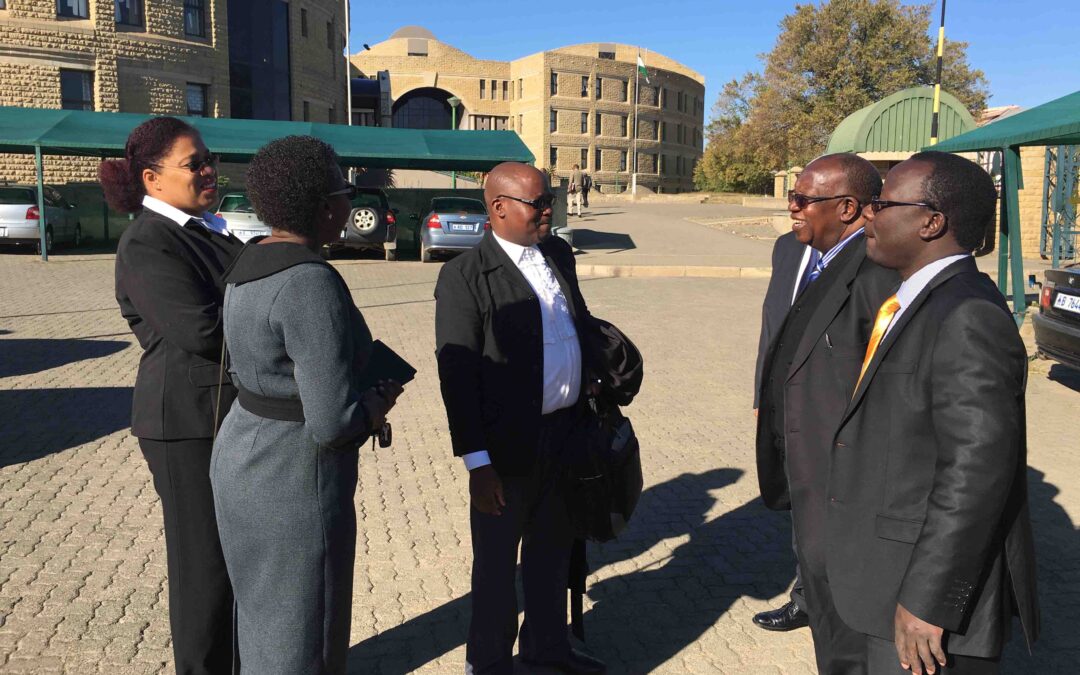
May 15, 2018 | News
The Africa Judges and Jurists Forum (AJJF) and the ICJ today called on the authorities in Lesotho to guarantee the independence of the judiciary and to immediately take all legal and administrative measures necessary to make the Court of Appeal function independently and impartially.
The call came as the AJJF and ICJ concluded a 5-day Fact Finding Mission to Lesotho (7-12 May 2018).
The mission emphasized the importance of the Lesotho authorities ensuring that the constitutional and legal framework on the selection, appointment and tenure of judges and the actual practices conform to the international obligations of Lesotho pursuant the international human rights treaties to which it is party, as well as other applicable international standards.
“During our mission we were troubled to discovered that the Court of Appeal has not sat in the past two of its scheduled sessions and with the current impasse we are concerned that it may not convene anytime soon,” said Retired Chief Justice Othman Chande of Tanzania who led the AJJF/ICJ mission.
“We also found that the Prime Minister had initiated a process that may result in the impeachment of the Chief Justice under controversial circumstances,” he added.
The AJJF and the ICJ have been concerned for a number of years about threats to judicial independence in Lesotho.
The ICJ carried out a fact finding mission in 2013 exposing and evaluating some of these concerns. The report of the mission contained specific recommendations.
The AJJF and the ICJ are concerned that most of the recommendations that were made to address structural issues to do with guaranteeing the independence of the judiciary at law and in practice have not been implemented or otherwise addressed.
The appointment of the Chief Justice and the President of Court of Appeal is made by the King on the singular advice of the Prime Minister.
Any impeachment of the Chief Justice and the President of the Court of Appeal is also initiated by the Prime Minister.
These arrangements do not comport with international standards and give rise to the perception that the appointment of judicial officials and any impeachment action against them will be politically motivated.
This has also lead to friction or strong perception of friction between the Executive and the Judiciary in a deeply polarized society.
The appointment process of the President of the Court of Appeal has been subject to prolonged political dispute and litigation that has resulted in a leadership vacuum at the appex court that has made it dysfunctional.
The result is that all litigants who expect justice from the Court of Appeal have years of waiting before they can get their matters resolved.
While the case challenging the appointment of an acting President of the Court of Appeal is presently set down for hearing at the High Court in the coming weeks, it is not clear that this adjucation will conclude the legal process and pave way for the appointment of the acting President of the Court of Appeal.
The appointment of ordinary judges of the High Court is done by the King on the advice of the Judicial Services Commission (JSC), which is chaired by the Chief Justice chairing a panel of only four people comprising the Chief Justice herself, Chairperson of the Public Service Commission, the Attorney General and one Judge.
All these officials are effectively appointed by the Prime Minister or closely work with the Chief Justice, resulting in an appointment process of judges of the High Court that lacks transparency and is perceived as open to cronyism.
“It is important that the legal profession and the judiciary speak strongly in defence of independence of the judiciary, but currently the legal profession is deeply divided, distrustful and polarized,” said Retired Chief Justice Sakala (Zambia).
“It is therefore important that a practice of regular bar-bench dialogue be initiated to reduce toxic relations that are being exploited to undermine judicial independence,” he added.
The broader reforms that were recommended by the SADC Commission of Inquiry to strengthen governance in Lesotho have not been wholly implemented.
The country needs broad reforms including in the judicial sector, but these reforms have been threatened or at least slowed down significantly by the instability in the successive coalition governments that make it impossible for the reforms to be carried out when the country is in a constant electoral mode.
The AJJF/ICJ mission hopes that the ongoing efforts to impeach the Chief Justice will fully respect her right to a fair hearing as stipulated in international obligations binding on Lesotho and that such efforts will strengthen rather than weaken the rule of law in an already fragile environment.
A report of the mission will be published and made publicly available.
Lesotho-End of Mission statement-News-2018-ENG (full story, in PDF)
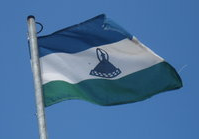
Jul 12, 2016 | News
The International Commission of Jurists (ICJ) has issued a joint statement condemning increasing acts of harassment and intimidation against journalists in Lesotho.
The joint statement expresses concern about a number of incidents threatening freedom of expression, exemplified by the recent shooting of the editor of the Lesotho Times newspaper, and have called on Lesotho Authorities to ensure the right to freedom of expression is protected.
In addition to the ICJ, the statement has also been signed by: amaBhungane Centre for Investigative Journalism; Amnesty International; Freedom of Expression Institute; Institute for Democracy; Lawyers for Human Rights; Lawyer for Human Rights (Swaziland); Media Institute for Southern Africa – Zimbabwe Chapter; Media Monitoring Africa; Open Society Initiative for Southern Africa; PEN Afrikaans; PEN South Africa; Rights 2 Know Campaign; SOS Coalition; Southern Africa Human Rights Defenders Network; Southern AFrican Litigation Centre; Transformation Resource Centre; Zimbabwe Human Rights NGO Forum; and Zimbabwe Lawyers for Human Rights.
Lesotho-Joint statement-Freedom of expression-Advocacy-2016-ENG (full text in PDF)
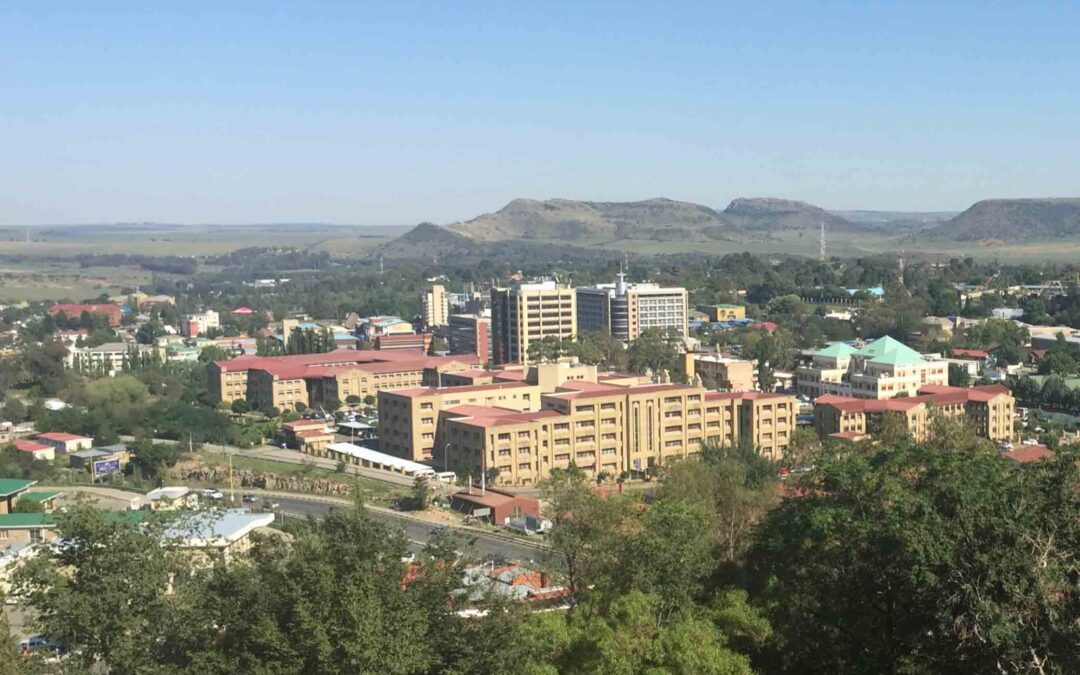
Feb 5, 2016 | News
The ICJ is monitoring the ongoing trial under court martial of the 23 members of the Lesotho Defence Forces in the case The King vs Brigadier Mareka and 22 Others.
The Court Martial was convened through a government order issued and signed by the Minister of Defence and National Security Hon Tseliso Mokhosi on 13 August 2015.
Under the convening order, Brigadier Mareka and 22 others were generally accused of charges related to planning and or involvement in mutiny and violence.
The convening order also identified the names of the members of the court martial as well as the prosecuting authority at such court martial.
The court martial raises issues around observance of human rights, the rule of law and good governance in Lesotho.
Its significance is reflected in the fact that the Southern African Development Community (SADC), an inter-governmental organization, is also seized with the matter as part of its mandate under the SADC Organ on Politics, Defence and Security Cooperation, and directed the convening of a SADC supported Commission of Inquiry into the issues related to the court martial.
The subsequently-established Commission of Inquiry has completed its work and filed its report with the SADC Organ on Politics, Defence and Security Cooperation and the Prime Minister of Lesotho.
The report is yet to be made public and is planned to be released on the 8th February 2016.
The ICJ will particularly monitor the consistency of the Court Martial trial with international fair trial standards, both in terms of the conduct of proceedings, and the independence and impartiality of the tribunal including in light of the manner of selection of the Court Martial members, in which a number of junior soldiers were promoted in rank in order to justify their presiding in a disciplinary case over their superiors.
In particular the promotion of the President of the Court Martial Major General Letsoela seems to have been done to facilitate that he as a junior officer sits to determine a case involving Brigadier Mareka and another brigadier who ordinarily are his superiors in terms of rank.
The ICJ will also monitor whether the Court Martial and investigative authorities act in accordance with international standards in responding to the credible allegations of human rights violations committed against Brigadier Mareka and 22 others.
The allegations include prolonged incommunicado detention, torture, inhuman and other degrading treatment while in custody, being inhibited from fully consulting with and briefing their legal representatives, and defiance of High Court orders by the Lesotho Defence Forces including that the soldiers should be detained in open prison and not a military detention facility and should not be kept in leg irons.
Contact
Arnold Tsunga, ICJ’s Africa Director, t: +277 16405926 ; e: arnold.tsunga(a)icj.org
LESOTHO-Brig Mareka and 22 Others-News-Web story-2016-ENG (full story in PDF)
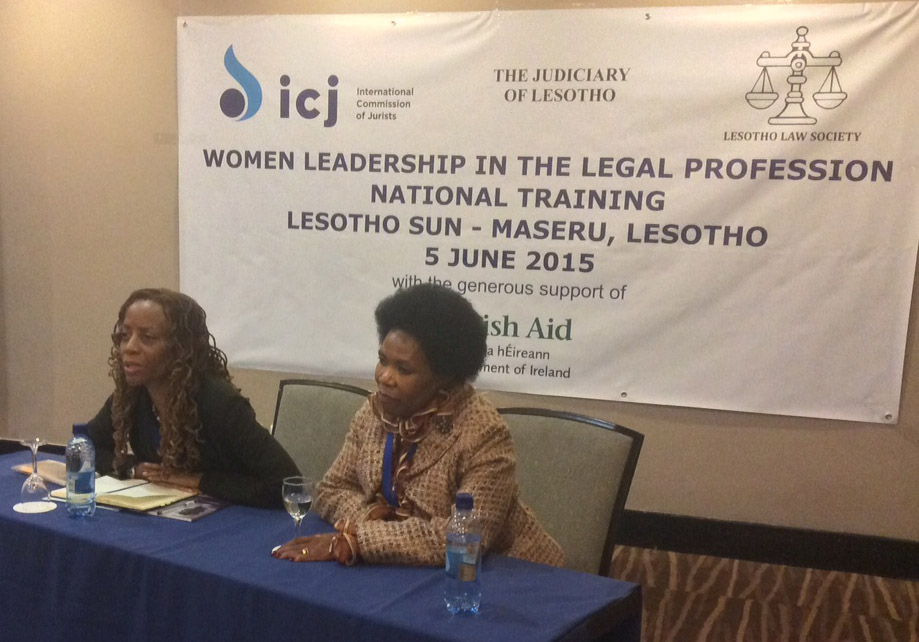
Jun 5, 2015 | News
Today, the ICJ convened its training on “Women lawyers making a difference through the Legal Profession” in Maseru. Thirty-five women participated in the event.
In many jurisdictions, men invariably dominate the legal profession and there is a necessity to interrogate the reasons for this.
The advancement of women has not been significant despite the fact that there is equality in numbers in enrolment in law schools.
There have been cited challenges and obstacles that have been raised by women lawyers for this lack of advancement, and these needed to be fully explored in order to adopt concrete recommendations to inform an adequate and effective response to the apparent inequalities.
In order to address this issue within the legal profession in Lesotho, the ICJ collaborated with the Judicial Service Commission and the Lesotho Law Society.
The training brought together 35 women including Chief Justice Majara, Judges, Magistrates, Lawyers and Human Rights Activists from Non-Governmental Organisations.
The main objective of the training was to provide a platform for the participants to engage in robust discussions on the systemic obstacles that affect the ascendancy of women to leadership positions and provide them with an opportunity to introspect and come up with plausible innovative solutions and identify opportunities for change.
Further, the training would address the gender gap in the legal profession and also interrogate possible capacity building initiatives for the participants, which will enable them to effectively advance women’s rights through various advocacy techniques.
In addition, the training also sought to provide an opportunity for the Judicial Service Commission and the Lesotho Law Society for dialogue on improving the situation of women in the legal profession, as well as contributing to the promotion and protection of women’s rights and access to justice.





